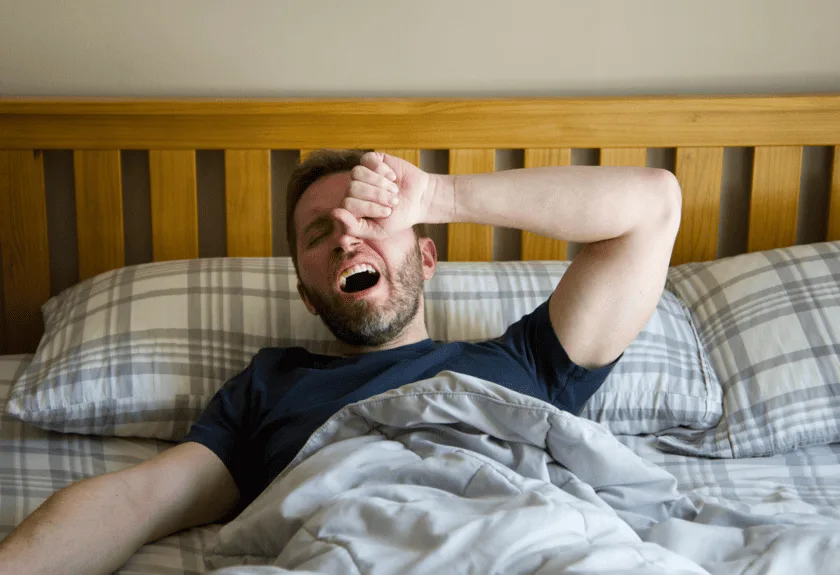Introduction
Have you ever stopped to think about how your body directly influences your emotions? The truth is that our physical health can impact mental well-being, in the way we feel, think, and react to the world around us. When we take care of our body, it responds with more energy, willingness, and emotional balance.
Now imagine the opposite: sleepless nights, unbalanced eating habits, and a sedentary lifestyle can leave us exhausted, irritable, and vulnerable to emotional challenges. Science confirms that our mental well-being is deeply linked to healthy habits.
So, let’s explore this connection and understand how small changes can transform your health from the inside out!
The Power of Exercise on Mental Health
Get Moving and Transform Your Mind
When you get moving, your body reacts in surprising ways! Physical exercise stimulates essential neurotransmitters like serotonin and dopamine, responsible for promoting happiness and motivation.
Additionally, physical activity reduces stress and improves self-confidence, creating an immediate sense of well-being.

Exercise as a Remedy for Anxiety and Depression
Studies show that regular exercise can be as effective as medication in treating anxiety and depression. When we move, our brain undergoes positive changes that enhance our ability to cope with difficult emotions.
So, even if the couch looks inviting, getting up and moving might be the key to a more balanced mood!
Sleep: The Foundation of Emotional Balance
The Rest Your Brain Needs
Sleeping well is not a luxury—it’s an absolute necessity! During sleep, our brain processes emotions, regulates hormones, and prepares the body for a new day.
When we don’t get enough sleep, everything becomes more difficult: our ability to concentrate decreases, our emotions become altered, and even our immune system can be compromised.
Poor Sleep, Unstable Mood (H3)
Sleep deprivation is directly linked to increased anxiety and irritability. If you’ve ever had a tough day after a night of poor sleep, you know well how it affects mood and patience.
Creating a structured sleep routine can be one of the most important factors in maintaining balanced mental health.
Nutrition and Cognitive Health: Feeding the Brain
Food and Emotions: There Is a Direct Relationship
What you put on your plate directly influences your energy, focus, and emotional stability. Nutrient-rich foods help the brain produce essential neurotransmitters, while an unbalanced diet can contribute to fatigue and low concentration.
Nutrients That Make a Difference
Vitamins like B12 and D, as well as minerals like magnesium and omega-3, play a crucial role in mood regulation. Consuming foods rich in these nutrients can help prevent symptoms of depression and improve cognitive function.
Chronic Diseases and Psychological Health
When Physical Health Weighs on the Emotional
Conditions like hypertension, obesity, and diabetes don’t just affect the body—they also influence self-esteem, motivation, and emotional health.
This happens because the body becomes more vulnerable to hormonal changes and inflammation, which directly impact how we feel.
Caring for the Body Is Caring for the Mind
Preventing chronic diseases and adopting healthy habits is not only a matter of physical well-being but also a powerful strategy to strengthen psychological health.
This is because physical health can impact mental well-being. Consequently, when we feel healthy, our mind naturally reflects that balance.
Stress: The Enemy of Mental and Physical Health
The Invisible Impact of Stress
Chronic stress is more dangerous than it seems! It affects the body on deep levels, causing muscle tension, increased blood pressure, and even inflammation.
Additionally, high levels of cortisol (the stress-related hormone) can dysregulate our emotions and make us more anxious and irritable.
Strategies to Reduce Daily Stress
Practices like meditation, regular physical exercise (such as swimming, strength training, running, cycling, or dance), and leisure time are essential for emotional balance.
In other words, having time to relax is as important as being productive—the secret lies in balance!
Small Changes, Big Results
The Importance of a Healthy Routine
Taking care of physical health doesn’t require major revolutions. Small daily adjustments, such as drinking more water, sleeping better, and engaging in outdoor activities, can have a profound impact on your life.
Conclusion
Keeping body and mind in sync is the key to a full life! When you take care of your physical health, your mind thanks you with more energy, emotional balance, and quality of life!
Don’t forget! Your physical health can impact the mental well-being you value so much.
Start today—make small changes and see how everything around you improves. Your well-being deserves this investment!
Scientific Reference: Doan, T., Ha, V., Strazdins, L., & Chateau, D. (2022). Healthy Minds Live in Healthy Bodies – Effect of Physical Health on Mental health: Evidence from Australian Longitudinal Data. Current Psychology, 42(42). https://doi.org/10.1007/s12144-022-03053-7





























